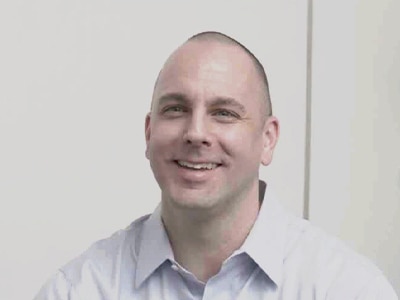Bachelor of Science in Economics Finance New England campus experience

Program Overview Why get an economics and finance degree on campus?
Are you interested in tackling the complexities of the global economy? The Bachelor of Science (BS) in Economics and Finance at Southern New Hampshire University gives you the tools to analyze market trends, understand financial strategies and make informed economic decisions. Here, you'll examine the behavior of the economy and its relationship to business and government, as well as the funding and investment needs of corporations, individuals and institutions.
Skills you'll learn:
- Identify long-term corporate investment opportunities
- Test hypotheses, forecast and interpret results
- Use economic data and financial models
- Make strategic business decisions
- Asset allocation, security analysis and portfolio diversification
- Critique policy proposals using optimization and equilibrium
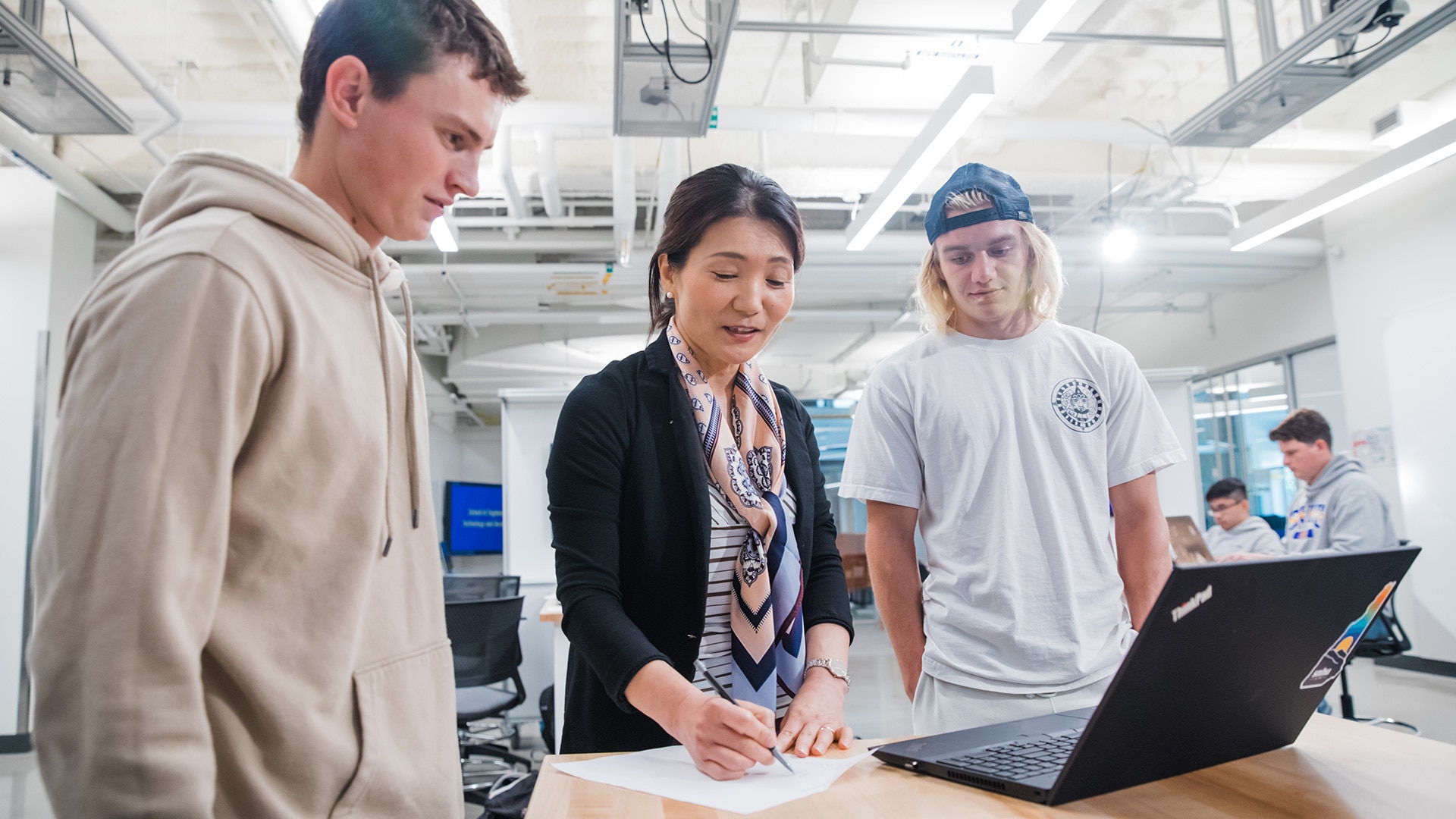
Courses & Curriculum Manage a portfolio with on-campus economics and finance courses
This program provides a blend of theory and real-world experience, honing your analytical and quantitative skills. In your classes, you'll build a solid foundation in the applied and theoretical areas of international and domestic finance, business and economics. That way, you'll develop the skills needed for corporate or individual financial management and economic modeling. You'll get to collaborate with your peers to forecast, test hypotheses and interpret results using economic data and financial models. And you can even get real-life experience in managing an investment portfolio, applying theories of asset allocation, security analysis and portfolio diversification.
Learn from instructors with industry experience
Our faculty bring with them decades of knowledge and experience in economics and finance, which informs the development of SNHU’s courses and curriculum. They look forward to supporting your journey both in the classroom and as you work toward a career in your field.
Michael Tasto
Position
Professor
Joined SNHU
2012
Education
- PhD in Economics from Georgia State University
- MA in Economics from Georgia State University
- BS in Economics from St. John's University
Dr. Michael Tasto served as department chair from 2012-2020 and recently served as interim dean for the School of Business. His primary field of interest for research is urban and regional economics. He has given numerous presentations and published journal articles, including a co-authored article in Economic and Politics titled, “Special Interest Group Formation in the US: Do Special Interest Groups Mirror the Success of their Spatial Neighbors?” His other research projects include examining the spatial analysis of competition by states to recruit firms and the median voter hypothesis using non-parametric estimation.
Greg Randolph

Position
Professor | Department Chair, Finance and Economics
Joined SNHU
2007
Education
- PhD in Economics from West Virginia University
- BA in Finance (economics minor) from Grove City College
Dr. Greg Randolph's primary research field of interest is public economics. His research projects include examining the impact of federal regulations, evaluating the criminal justice system and exploring the use of media to teach introductory economics courses. His publications include articles in the Journal of Institutional Economics, Business and Politics and Economics and Politics. He has also served as the co-editor of "Entrepreneurial Action, Public Policy, and Economic Outcomes" and "Public Policy, Productive and Unproductive Entrepreneurship" with Robert Salvino and Michael Tasto.
To learn more about SNHU faculty, visit our campus faculty page.
Campus major courses
You’ll take major courses that provide you with a solid foundation in your area of study – in some cases featuring experiential or project-based learning opportunities, labs, simulations and internships. These courses will allow you to learn a wide variety of topics and help prepare you for a role in your desired field.
Courses may include:
Visit the course catalog to view the full BS in Economics and Finance curriculum.
Campus general education courses
All undergraduate students are required to take general education courses, which are part of SNHU's newly redesigned program, The Commons. The goal of The Commons' curriculum is to empower you with some of the most in-demand skills, so you can succeed not only in your academic career, but in your personal and professional life too.
Courses may include:
Can’t wait? You don’t have to!
Apply now if you’re ready, and have your decision within 30 days. Or, schedule a visit and come see us in person!
Have questions? Visit our Contact Us page.
Career Outlook What can I do with an economics and finance degree?
The economics and finance program helps prepare graduates for employment in a variety of fields, including banking, corporate finance, insurance, government agencies, personal finance and securities. Whether you're interested in analyzing market trends, managing investments or working directly with clients, you could consider opportunities at financial institutions, consulting firms, government agencies or corporations. Additionally, you’ll be encouraged to take the Financial Services Industry Essentials Exam, giving you a potential leg up that employers look for. Some students choose to continue their studies with a graduate program in economics, finance, other business-related disciplines or law.
Career paths include:
- Financial analyst
- Research assistant
- Financial advisor
- Software developer
- Data analyst
Openings projected each year for business and finance occupations through 2033, according to the U.S. Bureau of Labor Statistics (BLS).1
Median annual salary nationally for business and finance occupations in May 2023, according to the BLS.1 Statistic not based on wage data for SNHU graduates.
Understanding the numbers
When reviewing job growth and salary information, it’s important to remember that actual numbers can vary due to many different factors—like years of experience in the role, industry of employment, geographic location, worker skill and economic conditions. Cited projections are based on Bureau of Labor Statistics data, not on SNHU graduate outcomes, and do not guarantee actual salary or job growth.
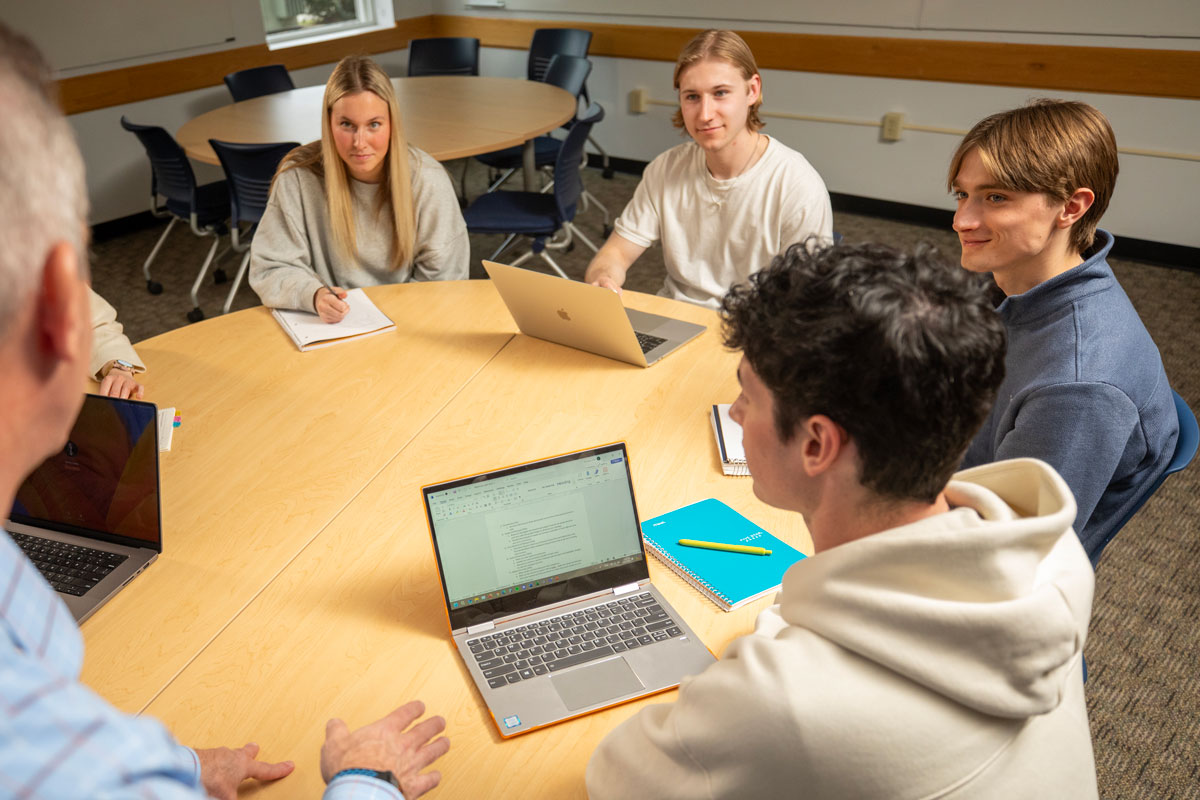
Campus Student Experience So, what's it like taking classes on campus?
At SNHU, you'll be putting what you learn into practice on a regular basis. Whether you’re presenting data at Undergraduate Research Day or submitting a paper for publication in an academic journal, you’ll be applying course concepts that center around economic modeling, forecasting and the study of economic behavior. You might also find yourself collaborating with classmates on projects, organizing speakers or participating in the Economics and Finance Club’s stock market challenge.

Student support
At SNHU, you don’t have to do this college thing alone. You’ll have help from your advisor, access to tutoring and office hours, career coaching, and mental health services so you can do your best and feel your best.
Additionally, our Office of Diversity and Campus Accessibility Center make campus a safe place for everyone. Visit our Student Services page to learn more about our support offerings.

Small class sizes
With an average class size of 15-25 (depending on your major) you’ll learn in an environment where professors with real world experience know you by name.
Here, you’re not getting lost in giant lecture halls, but instead, actively participating in thoughtful dialogue where you’re always encouraged to collaborate with your peers and ask questions when they arise.
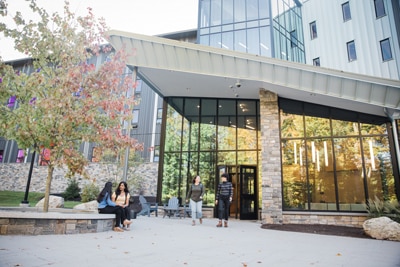
State-of-the-art facilities
Our 300-acre campus has everything you need. From technology-advanced classroom settings to your dorms complete with fitness centers and hangout spots, our goal is to give you the best college experience possible.
Whether you’re learning in a classroom, in a lab, on the field, or in your field, you’ll have what you need to be successful from the moment you wake up to the moment you close your textbooks.
School of Business Learn about the School of Business
In the School of Business, you’ll tackle real-world business challenges with the help of your experienced professors. From interning with local sports teams to learning the ins and outs of starting your own business, you can hone your skills through peer collaboration, case studies and participating in business competitions. Whether you’re focusing on an organization’s finances, marketing, technology or leadership, you’ll get firsthand experience from day one.
Business simulations
Sales immersion lab
Pitch competitions
How SNHU makes college affordable
At Southern New Hampshire University, we're on a mission to make high-quality education more accessible with more affordable tuition. With 70+ career-focused majors, state-of-the-art facilities, D2 sports and over 70 student clubs and organizations, you can get the campus experience you've always dreamed of at a more affordable price.
Fill out the FAFSA to see if you’re eligible for grants or work-study. (You could also be offered loans, though you’ll have to pay those back later.)
Transfer up to 90 credits toward your bachelor's degree program at SNHU. If you’ve taken one course or many, we’ll evaluate them for you.
Getting free money for college – from SNHU or an outside organization – could help you save hundreds or even thousands of dollars.
Our collaborative partnerships with high schools enhance academic opportunities and college accessibility for some high school students.
Hear from us

My favorite part of the economics and finance department is the people. The students are both competitive and helpful, and the teachers express that they're not just there to help you in class but are willing to help you outside of class as well.
Ben Mikus, Student, BS Economics & Finance
Accreditations
SNHU is accredited by the regional accreditor the New England Commission of Higher Education (NECHE). The university also carries specialized accreditations for some programs.
This program and its concentrations are accredited by the Accreditation Council for Business Schools and Programs (ACBSP). Student achievement data can be found on the ACBSP accreditation page.
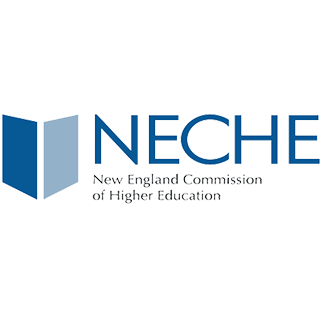
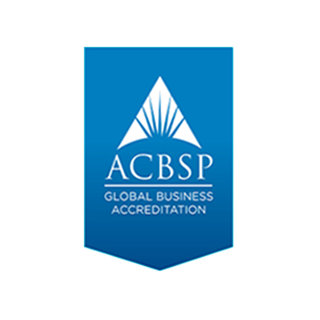
Sources & Citations
1Bureau of Labor Statistics, U.S. Department of Labor, Occupational Outlook Handbook, on the internet, at https://www.bls.gov/ooh/business-and-financial/home.htm (viewed Oct. 2, 2024).
Cited projections may not reflect local or short-term economic or job conditions and do not guarantee actual job growth.
Your dream school is waiting
Apply now or schedule a visit today.



